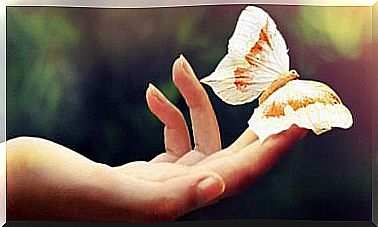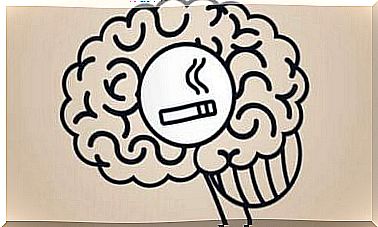3 Ways To Stop Blaming Yourself

Thomas Harris, the creator of the terrifying character Hannibal Lecter, had some wise words for us. He said “blaming nature for your mistakes does not change the nature of your mistakes.” It makes one think about how debt is used. It also encourages you to think about how important it is to stop blaming yourself.
Being a perfectionist can be good, but you have to find a balance. Otherwise, guilt can turn perfection into punishment. Most of the time you will be able to find something to improve. As a result, you will find it difficult to be happy with your work.
Therefore, it is important to work on your weaknesses, but not so much that you become obsessed. If you come to this dangerous place, you can be devoured by guilt and frustration.
Stop blaming yourself. The bad things that happen are not always your fault. You need to learn to study the situation carefully. Even if something is your fault, it is not worth the effort to constantly remind yourself of your guilt.
If you do not get out of the vicious circle of self-blame, you could end up in a downward spiral that is difficult to get out of. But psychologist Arturo Torres has some helpful strategies you can use to break the cycle.
If you follow his advice, you can learn to stop blaming yourself for everything.

If you manage to stop feeling guilty about everything, you will be able to face life with a positive, constructive attitude. This does not mean that you should not be aware of the consequences of your actions. You should also not ignore things that are happening.
The point is to take responsibility for it and act in a constructive way. Look for solutions instead of focusing on the problem itself. You need to change your behavior and the way you relate to things.
Feeling responsible for something bad that has hit you is normal. But that does not mean you should feel eternal guilt. Your guilt will probably be for a while, but you do not have to make yourself a martyr.
The best thing you can do is see it as a learning experience. Instead of punishing yourself, make sure you do not make the same mistake again. Learn from the mistake, then you will internalize the lesson and minimize the guilt.
It is not useful to constantly blame yourself. There is no point and it is completely illogical. Instead, ask yourself what happened and what was the trigger. Think about what you could do better and what you can do next.
Nobody is perfect. It sounds cliché, but it’s true. It is important to know what your strengths are and what you are good at. On the other hand, you should also identify your weaknesses. Be aware of them so that you know when you are at higher risk of failure.
It is obvious that we can not do everything perfectly. This is another cliché, but no less true for it. It’s a reality you have to accept – the sooner the better.
If you remember this and identify where you are doing well and what you are doing less well, you will know what is and is not your responsibility. You will be able to see when you need to work harder.
Let’s say you encounter a complicated obstacle in life. If you are aware of it, you can avoid it. If you can not avoid it completely, you can at least evaluate your possible course of action. With that said, you need to take responsibility for your paralysis of action if you do not do so out of pride or stubbornness.

People who feel great guilt tend to push themselves down in front of others. They tend to shoulder debt for things they have basically had nothing to do with. As a consequence, they accept all accusations of guilt from others.
They lack determination, so they behave in a submissive way. This is a common dynamic in these types of relationships.
Reflecting on past events is important. Take the time to consider each person who was present and their level of responsibility. You should question the accusations people make against you; do not take them for granted.
It is also easy to fall into the trap of self-blame if you have low self-esteem. It also makes it easy for others to blame you.
Closing the circle of self-accusations can be a simple process if you know the steps. If you are able to analyze your specific situation, you can detect the problems and try to redirect the situation.
It’s not about punishing yourself for your mistakes. The key is to look for alternatives and create other paths that allow you to continue to grow.









